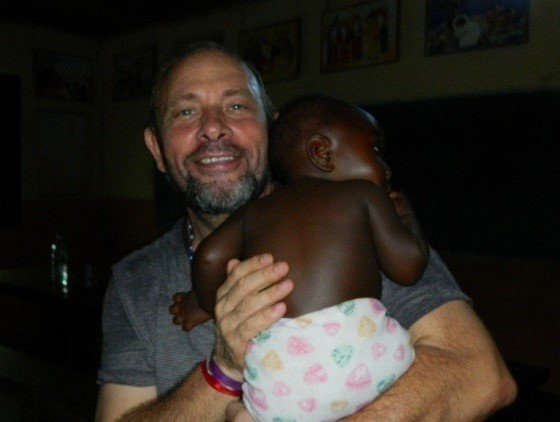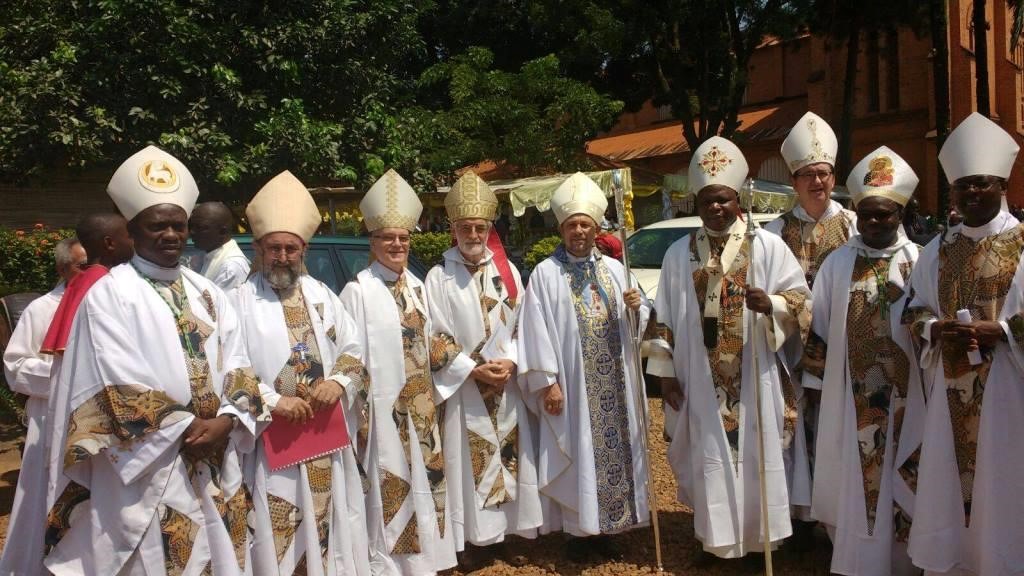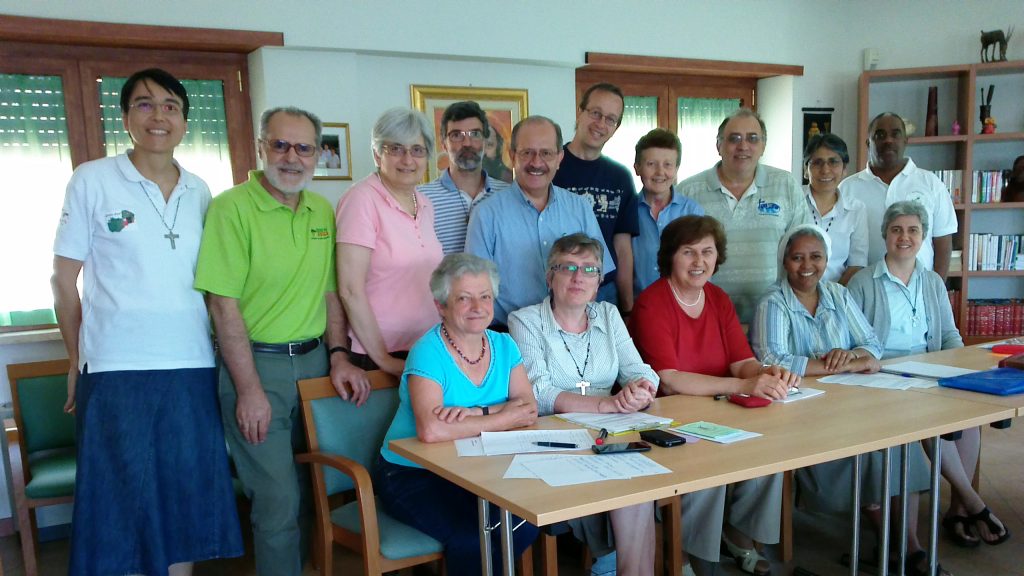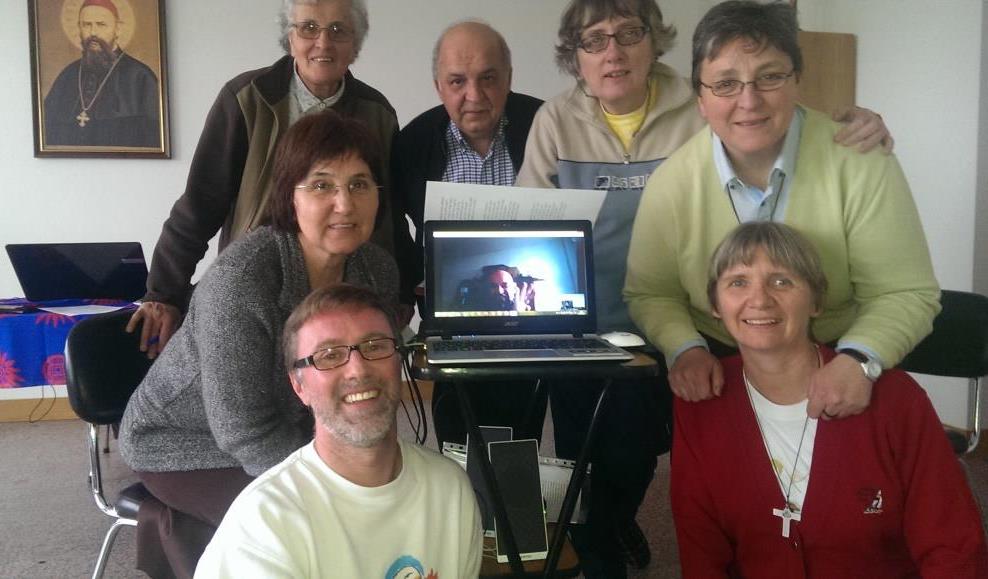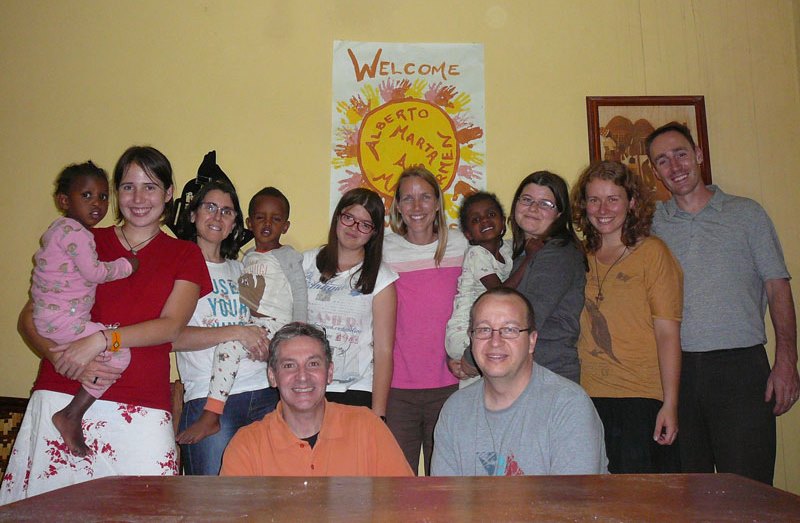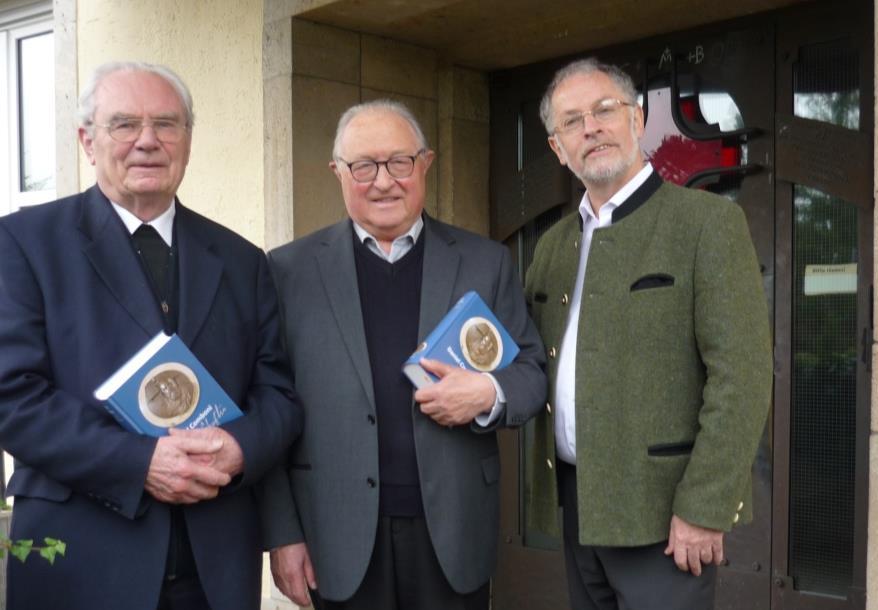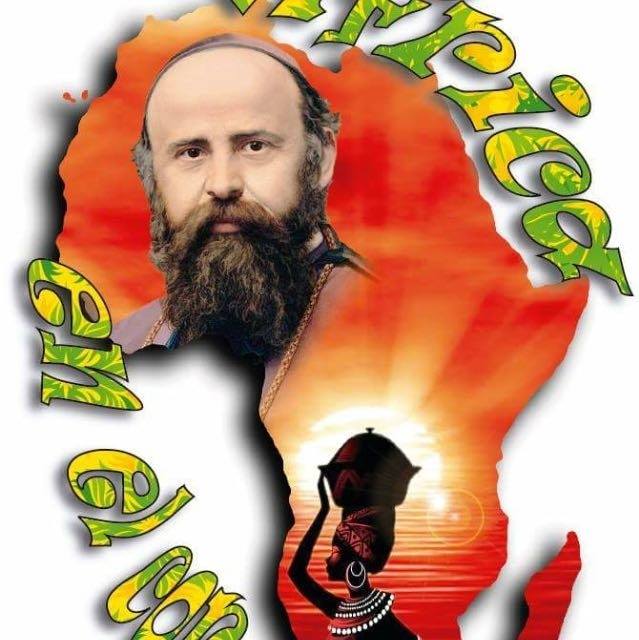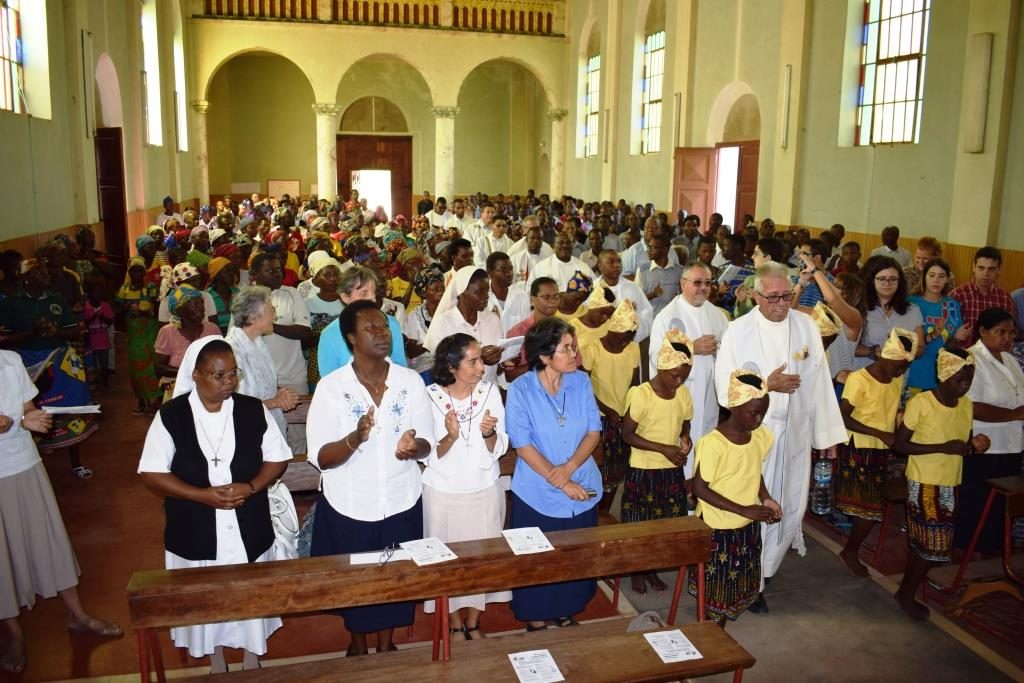
Resuming the vision of the Second Vatican Council, Pope Francis has chosen the paradigm of the “Church which goes forth” as the missionary programme for our times. This resumption is significant for its being contextualised in a world, that of our day, that is decidedly breaking with the past. “We do not live in an epoch of change but in a change of epoch”: with these words, Pope Francis reminds us that the old ways we employed in the past to interpret the world and the mission are no longer capable of responding to the challenges of today. The new global situation requires a “global mission”, seen in all its complexity and with premises, style and means that are new with respect to the past (EG 33).
The classical vision which saw the churches of the north of the world sending missionaries to the south has been surpassed by the transformations of recent decades, with globalisation and human mobility reaching levels never seen before. The Comboni circumscriptions also reflect these changes: in the composition of personnel, sending missionaries to other provinces, the fact that commitment to mission promotion applies everywhere and is no longer a field of service belonging exclusively to the provinces of the north of the world.
The geographical criterion of mission no longer constitutes the principal reference point. The idea of the frontier still exists but it is now qualified in the human and existential peripheries. It is a great challenge for the missionary Institutes, the majority of whose members today have probably joined their Institutes while identifying the mission with a particular geographical area. There are ties of affection with geography and history; the notion of a “global mission” causes a degree of unease and the fear of being “closed in” in the north of the world and one’s original province, because of the idea that “mission is everywhere”, or “also in Europe”. In reality, this concern – both understandable and reasonable – still reflects the geographical thinking we said was now superseded. How, then, can we think in an alternative way that corresponds more closely to the situation of today?
Pope Francis invites us to start from the frontiers, the “peripheries in need of the light of the Gospel” (EG 20). These frontiers are not simply defined by geographical data but are the result of an economic-financial system that generates exclusion, and a culture of waste that produces poverty and violence. Bringing the light of the Gospel to these peripheries requires, most of all, insertion which implies:
- a presence rooted in the territory;
- involvement in the daily life of the people;
- solidarity with their sufferings and needs;
- accompanying this part of humanity throughout all its processes, however long and drawn out they may be.
In this lies the key to the ministerial approach: accompanying is not generic, nor is it ordinary pastoral work brought to the peripheries. At the 2015 General Chapter it emerged that we are present in peripheries that are very meaningful for our charism, such as our presence among those of African descent or the indigenous peoples in Latin America, or that among the pastoralists and people living in slums in Africa. However, it often happens that there is no specific pastoral approach that takes into account the characteristics of the context, the situations, the local culture or the uniqueness of the people. What is needed is a pastoral approach which, in the complexities of the world of today, demands the linking of various ministries and evangelisation carried out as a community: apostolic communities which collaborate not only by identifying and sharing their own gifts but which witness to the Kingdom, living with fraternity and communion in diversity.
None of these elements are “new”; seen in themselves, they may be already present in various experiences of the Institute and they have already been spoken of in different Chapters. However, we are called to assume them taking a different perspective or paradigm, with a view of the mission that reorganises all their fundamental aspects. The image of the “Church that goes forth” is an icon that suggests the idea of mission and a pastoral methodology (taking the initiative, becoming involved, accompanying, bringing to fruition, celebrating; EG 24). It is paradigmatic since it requires that also other fundamental dimensions, such as the formation and the organisation of the Institute at various levels, become consistent and directed towards this mission.
At this point, how can we, in practice, take on board this paradigm and which challenges should we respond to? The Chapter suggests we start from the mission; beginning with the identification of continental priorities shared by several circumscriptions and lived in a broad collaboration, at the inter-provincial or continental level. In the context of such priorities, we are called to develop specific pastorals as a requalification of our presence and missionary service. Keeping firmly in mind this central point, we will have a reference-point to re-think also the formation and reorganisation of the Institute.
- Developing specific pastorals
Developing a specific pastoral is an ecclesial task, not to be done alone. It requires dialogue, participation, collaboration and a multiplicity of skills and experiences. Above all, it is necessary to have a method that allows for the appreciation of all contributions, the acceptance of different experiences and perspectives and the creation of communion in diversity. A specific pastoral is adopted when, despite the variety of points of view, theological perspectives, sensibilities and ministries, all can recognise themselves in it without denying one’s own sense of identity. It is a point of fundamental importance, especially in an Institute that is growing in internationality and is beginning to live out the challenge of inter-culturality.
All this is possible starting from sharing in the grass roots of the more transforming experiences related to the specific pastoral approach being taken into consideration, using the approach of an Appreciative Inquiry.
Common reflection on such regenerating experiences causes the emergence of new intuitions and understandings of that which renders a ministry fruitful in that context.
To better understand the reasons for their effectiveness and to study more deeply their dynamics, these experiences are subjected to a social-cultural analysis of the contexts of the specific pastoral, in order to reach a complete picture with its dynamics and leanings. By analogy, a specific theological and ministerial reflection on the situation helps us to clarify more our ministries and to identify the most suitable operative instruments.
The next stage is that of the shared discernment of some principles that may guide us in that specific pastoral context. Because they are only guidelines, these do not provide ready-made answers but will leave room for adaptation to particular situations and for creativity. On this foundation, it will be possible to build a journey of communion in which to experiment, research, learn, share, exchange experiences and personnel, record discoveries and results and so on, in successive cycles of Action Learning.
- Reorganisation
In order to succeed in developing and sustaining specific pastorals, it is necessary to achieve the gradual reorganisation of our presence and our manner of operating. Hitherto, our missionary presence has been mainly based on a geographic criterion: confreres are appointed to a province and are then, as needs require, assigned to a community. This structure reflects the premise that – apart from some particular services – missionary work generally consists in founding or bringing to maturity Christian communities or parishes. But this is not the only possible way to think of organising missionary work.
For example, for some decades the Jesuits have begun to see their missionary service as a response to the human needs of refugees (JRS), of people stricken with AIDS (AJAN), and to situations of injustice (Faith-Justice Centres). Personnel are properly trained and assigned to these services.
In recent years, also the Comboni Institute has begun a reflection on the ministerial approach, having in mind some human groups subjected to exclusion and ministries in prioritised environments (CA ’03 Nos. 43, 50; CA ’09 Nos. 62-63; CA ’15 No. 45). Obviously, the geographical element is unavoidable since these human groups are also located in certain areas and insertion in the Church also requires a parish presence. However, the main criterion is the specific ministry towards these people which requires:
- Pastoral teams. These are composed of personnel engaged in various ministries with specific skills and a variety of personal gifts, working as a team. In view of the complexity of the today’s world, it is opportune to combine various skills including those of human and social science. Diversity of skills is a help towards collaboration; diversity of nationalities and cultures within a team, when lived in fraternity, is a prophetic sign in a world that is ever more divided and in conflict. This communion/solidarity is what marks out a pastoral team not only as an efficient working team of people who get on well together but also as a fraternity of missionary disciples. Clearly, average-sized communities will find it easier to be effective, being able to have people with complementary and transversal skills and ministries (such as JPIC), and will more easily cushion the effect of absences due to holidays or reasons of health; develop a deeper reflection and share skills and resources with other communities involved in the same specific pastoral work. All this demands a reduction in the number of communities but facilitates networking from the local to the provincial level.
- Networking. The pastoral team does not work in isolation but is, first of all, inserted in and collaborates with the local Church. It also goes further by cooperating with various components of civil society for social transformation inspired by the values of the Kingdom. There are also other levels of cooperation that experience shows to be of vital importance: for example, forming a network with other communities and ministerial teams both at regional and international levels. Without this support and a continual stimulus towards openness, growth and the exchange and sharing of resources, a local team will soon find itself running out of steam. This applies especially to research, experimentation, ongoing learning and reflection on good practice and innovation. The world continues to move while the team is in danger of staying still and becoming fossilised, or of reacting to situations instead of responding creatively.
- Supporting structures. The various teams involved in the same specific pastoral process need connecting and supporting structures. This would be the best context in which to propose courses of ongoing formation, research and experimentation to accompany the people better in their journey of inclusion and transformation. Collaboration with academic research institutions, for instance, could be a useful resource, as well as specific secretariats and some processes of participated research and action. It is also necessary to re-think the structures in which we live and which we run in our ministry. In fact, these may create a gap between the people and the missionaries or even absorb the missionaries so much with administration that they lose their direct contact with the people or their willingness to walk alongside them. It must also be noted that the Total Common fund may be an opportunity that helps us to carry out shared and co-responsible planning in the context of a specific pastoral work at the provincial level. In fact, the economic dimension concerns the choice of life-style, the means, co-operation and planning of a pastoral sector with which the community projects interact. Lastly, the reduction of commitments and the requalification of missionary presences and services called for by the last General Chapter will become a reality if we have the instruments and the method to carry them out through processes of communion that are inclusive and participated. It is this aspect that determines the effectiveness of the sort of leadership that is not just administrative but one that leads us to a new beginning.
3. Directed formation
Basic formation, too, must be reviewed in order to develop ministerial skills, especially as regards the curriculum of the scholastics. The theological programmes, which generally provide an academic training, do not necessarily help towards the formation of attitudes and skills that are useful in the ministerial approach, or provide the support, methodologies and practical instruments that would be of great benefit to a specific pastoral work. Needless to say, a curriculum of studies will be all the more useful the more it is in line with the specific ministries of the Institute. One could therefore consider the possibility of characterising the formation of the scholasticates with orientations in line with the ministerial priorities of the continents in which they are located. Even if, later on, a confrere works in other contexts, the ministerial skills he has acquired will be partly transferable and, in any case, will be the best preparation for acquiring new skills.
In conclusion, the acceptance of the new paradigm of mission does not mean doing away with the past so as to bring in only completely new things. Rather, it is a question of redirecting and integrating the different aspects of the missionary life and service (specific pastorals, persons, reorganisation, economy) towards the vision of mission indicated by the Chapter and the participated processes of requalification of our missionary presence and service.
September 2017
Bro. Alberto Parise mccj
Questions
- In order to develop specific pastorals, a thorough understanding of the situation is necessary. Is it common practice (in communities, zones, circumscriptions and continents) to examine the situation (e.g. by the use of the hermeneutic circle) to identify pastoral needs and adopt modalities of presence and action that meet those needs?
- What measures have been taken in your circumscription to rethink the objectives, the structure, the style and the method of evangelisation from a ministerial viewpoint?
- Specific ministries (regarding, for instance, people of African descent, the indigenous peoples of Latin America, pastoralist peoples in Africa, slum-dwellers or refugees and the like) require, besides pastoral teams, networking and supporting structures with a continental pastoral outlook. To what extent does our pastoral planning succeed in overcoming the geographical limits of the circumscription and adopting a continental approach? Which continental structures ought to be reinforced to promote a continental criterion of common pastoral needs?
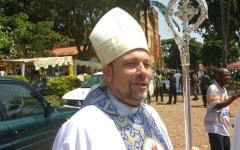 The Comboni Missionary from Burgos, Jesús Ruiz Molina, was ordained on November 12, 2017 auxiliary bishop of Bangassou in the Central African Republic (CAR). The celebration took place in Bngui, because his own place can only be reached by helicopter. In fact, the political authorities and other guests did not want to be taken to Bangassou, due to the state of insecurity prevailing in the region. After passing through Chad and for the CAR’s city of Mongoumba, Jesús Molina has accepted to be assigned to a place which is afflicted by an endless guerrilla in order to work with Bishop Juan José Aguirre Muñoz, another Spanish Comboni Missionary, in trying to find ways to peace and reconciliation and to serve the poor.
The Comboni Missionary from Burgos, Jesús Ruiz Molina, was ordained on November 12, 2017 auxiliary bishop of Bangassou in the Central African Republic (CAR). The celebration took place in Bngui, because his own place can only be reached by helicopter. In fact, the political authorities and other guests did not want to be taken to Bangassou, due to the state of insecurity prevailing in the region. After passing through Chad and for the CAR’s city of Mongoumba, Jesús Molina has accepted to be assigned to a place which is afflicted by an endless guerrilla in order to work with Bishop Juan José Aguirre Muñoz, another Spanish Comboni Missionary, in trying to find ways to peace and reconciliation and to serve the poor.



